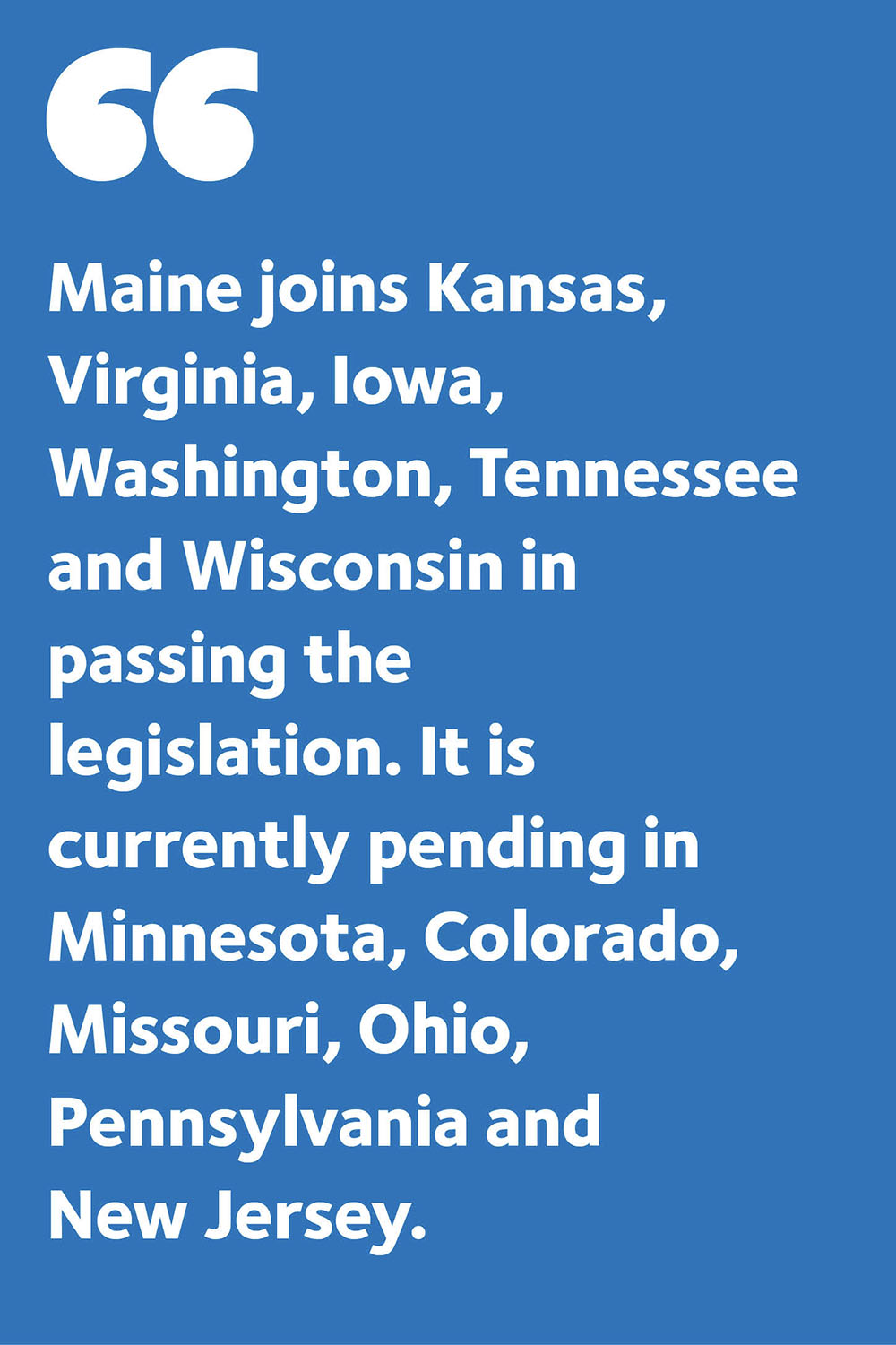Gaining momentum: License portability on the horizon
Maine activates Dentist and Dental Hygienist Compact

Maine has officially joined the Dentist and Dental Hygienist Compact, becoming the seventh state needed for the compact to reach its next stage.
On April 22 Gov. Janet Mills signed into law Legislative Document 2137, which entered Maine in to the Dentist and Dental Hygienist Compact, an interstate agreement that supports license portability among dental professionals. The Dentist and Dental Hygienist Compact enables dentists and dental hygienists to practice in other states participating in the compact rather than obtaining individual licenses in every state they want to practice.
ADA President Linda J. Edgar, D.D.S., said dental professionals across the country have expressed concern over the workforce challenges and long patient wait times.
“Yet, when trained, experienced dentists and hygienists move to a new state, they face the same barriers to getting a license as those who have never practiced before. The compact will help alleviate workforce challenges in these states and states that join in the future,” she said.
Now that seven states have joined the compact, a commission with one representative from each of the first seven states will create the application process and be in charge of vetting applications for license portability.
Dental professionals who apply for compact privileges must undergo an FBI background check, have their eligibility verified and complete jurisprudence requirements before receiving a privilege. Practitioners using the compact need to have an active, unencumbered license, and must have graduated from a CODA-accredited program.
According to an ADA news release, partners in the compact expect the first compact privileges to be issued in approximately one year.
Maine joins Kansas, Virginia, Iowa, Washington, Tennessee and Wisconsin in passing the legislation. It is currently pending in Minnesota, Colorado, Missouri, Ohio, Pennsylvania and New Jersey.
The Dentist and Dental Hygienist Compact, created in part by a grant from the Department of Defense, will also benefit military families, who are often assigned to a duty station for only several years. If a family is relocated to a state with a compact privilege, the service member or spouse can continue to work without having to obtain a new license.

Virginia Dental Association President Dustin Reynolds, D.D.S., expressed support for the seventh state passing the compact, which he said, “enables a straightforward, predictable path to begin practicing while protecting patients in Virginia.”
“Especially for the active-duty military families who call Virginia home, many of whom have family members who work in health care, the compact provides one more option to avoid licensure delay in meeting oral health care needs in our communities,” Dr. Reynolds said.
Wisconsin Dental Association President Chris Hansen, D.D.S., said that Wisconsin passed the legislation unanimously.
“The compact is an important part of the WDA's goal to grow and strengthen the dental workforce in Wisconsin, and we’re excited to see it now take effect,” Dr. Hansen said.
Iowa — which was the first state to join the compact — received unanimous support from the legislature and the Iowa Dental Association, noted Iowa Dental Association member Brian Howe, D.M.D. He added that the compact serves as “the change in dental licensure we have been waiting for.”
“I am excited to see how we progress as other states join the DDH Compact and continue to expand the portability for dentists in the U.S. This is an achievement that has been a long time coming,” Dr. Howe said.
Andrea Hayes, executive director of the Tennessee Dental Association, expressed excitement over Tennessee being one of the first to pass the compact last year.
“As a state that shares a border with eight other states, the compact could facilitate better access to oral health care and have a positive impact on the provider shortage as additional border states are added,” she said.
For more information about the compact, visit ddhcompact.org.



